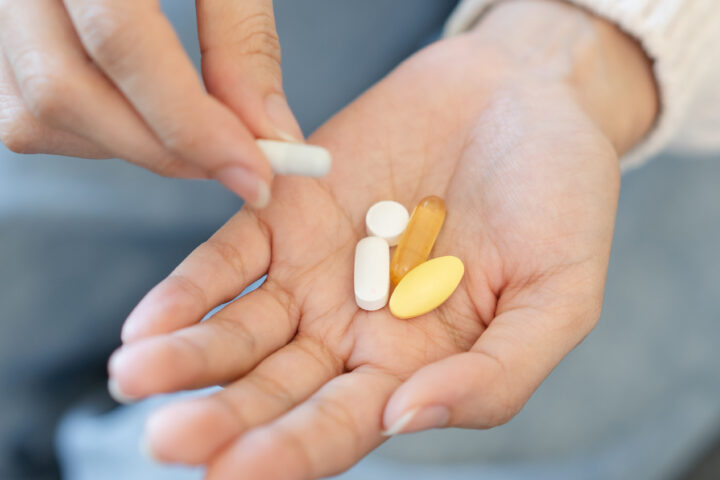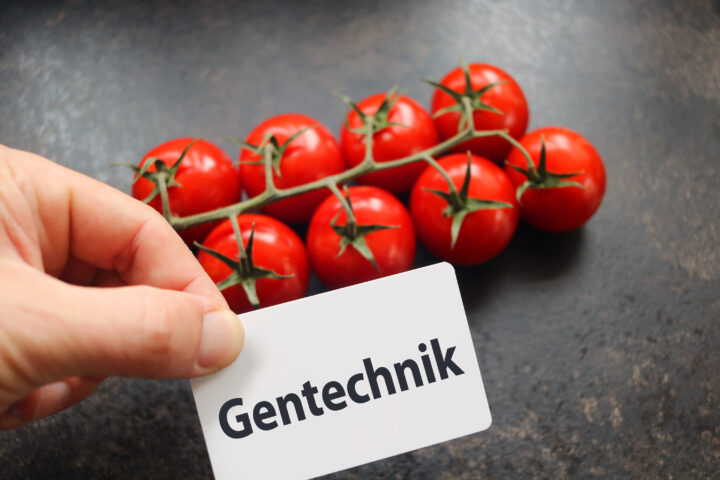
An innovation hub for cultured meat
Migros, Bühler and Givaudan are launching an innovation hub for cultured meat. A pilot facility in Kemptthal (canton of Zurich) is moving forward with the development and marketing of lab-grown meat. These new products are expected to outperform traditional meat in terms of their environmental impact, climate protection and animal well-being. The newspaper “BauernZeitung” has published a report.
Monday, October 25, 2021
Consumer awareness of environmental issues is growing. As a result, we are seeing a steady increase in demand for foods produced in a way that uses resources efficiently. Given global population growth and an increasing need for agricultural land, there is more demand than ever before for alternative sources of protein. Migros, Bühler and Givaudan believe that the use of cellular agriculture to produce cultured meat represents a great opportunity. The advantages are obvious: There is no need for livestock farming or antibiotics, less land and water are required, and animals need not be slaughtered. Consumers are learning more and more about the advantages of alternative meat, the three companies contend.
Sustainable meat through biotechnology
With their newly launched Cultured Food Innovation Hub, Migros, Bühler and Givaudan are making their technology and expertise available and supporting startups in their efforts to produce cultured meat, fish and other kinds of seafood. In a press release, they announced plans to add facilities for cell cultures and precision fermentation. The hub is expected to begin operations in 2022. In a laboratory, fermentation will be used to culture meat products from animal cells. The goal is to produce cultured meat with a taste and texture that are indistinguishable from meat taken from an animal. If this effort is successful, future meat lovers will be able to enjoy steaks and hamburgers in good conscience. Modern technology is opening up entirely new business areas for the food industry.
Precision fermentation
In biotechnology, fermentation refers to the transformation of organic material through microorganisms such as bacteria, fungi or enzymes (ferments). This process produces acid, gas or alcohol. We have long known about the process of fermentation, and products like wine, cheese, yoghurt, bread, beer, chocolate and sauerkraut would be inconceivable without it. Microorganisms are able to create large amounts of substances that would be difficult to produce solely through chemical processes. In precision fermentation, bacteria can be used, combined and programmed in a precise way to improve a product’s taste or optimize its texture. This makes it possible to produce animal-free animal proteins in large tanks from plant-based raw materials. With precision fermentation, a growth medium could be created for growing meat quickly in the laboratory.
Resource-efficient agriculture
Resource efficiency refers to the efficient use of technical and economic as well as natural resources. It is defined as “the ratio of a certain benefit or result to the resources that must be used to achieve it.” Resource-efficient agricultural production seeks to optimize harvest yields while using as few production resources as possible (including labor, financial resources, energy, land, water, fertilizer and pesticides) and putting as little burden as possible on natural resources (water, soil, biodiversity, air and the climate), while achieving the largest and highest-quality yield possible.
Related articles

Residue is not the same as residue
Painkillers like Voltaren are a blessing for us – yet in our rivers they can harm fish. If these were crop protection products, calls for bans would be immediate. It becomes clear that we are applying double standards.

ARTE documentary: Genetic engineering in organic farming?
The ARTE documentary “Genetic engineering in organic farming?” examines key controversial questions of modern agriculture: Is the general exclusion of new breeding technologies still up to date? Can the resistance of organic farming be justified scientifically?

The Great Suffering of Farmers
Fire blight, Japanese beetles, or grapevine yellows – farmers in Valais, too, are increasingly feeling helpless in the face of the threats posed by nature. More and more often, they lack the means to effectively protect their crops. This makes it all the more important for the Federal Council to place a pragmatic balancing of interests at the forefront when setting threshold values.

'Tomatoes on your eyes'
The submitted “Food Protection Initiative” calls for “GMO-free food.” Leaving aside this illusory demand, its adoption would mean more bureaucracy, more trade barriers, and less innovation. The Swiss Farmers’ Union describes the proposal as “unnecessary” and warns of a setback to the goal of achieving an even more sustainable agriculture.

